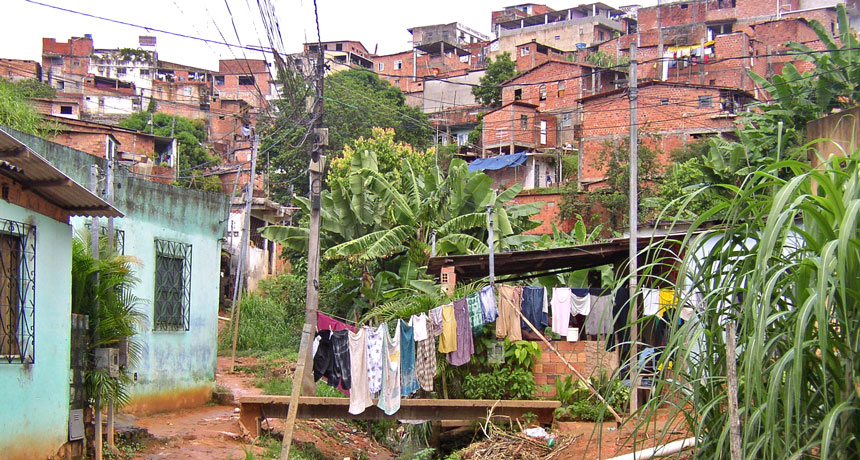In some cases, getting dengue may protect against Zika
What happened in a hard-hit Brazilian slum suggests timing of dengue infections may matter

EPIDEMIC EPICENTER The Pau da Lima neighborhood (pictured) in Salvador, Brazil, was hit hard by the Zika outbreak in 2015 and 2016. A long-running health study in the neighborhood found some surprising lessons about the how the virus spread.
Albert Ko







